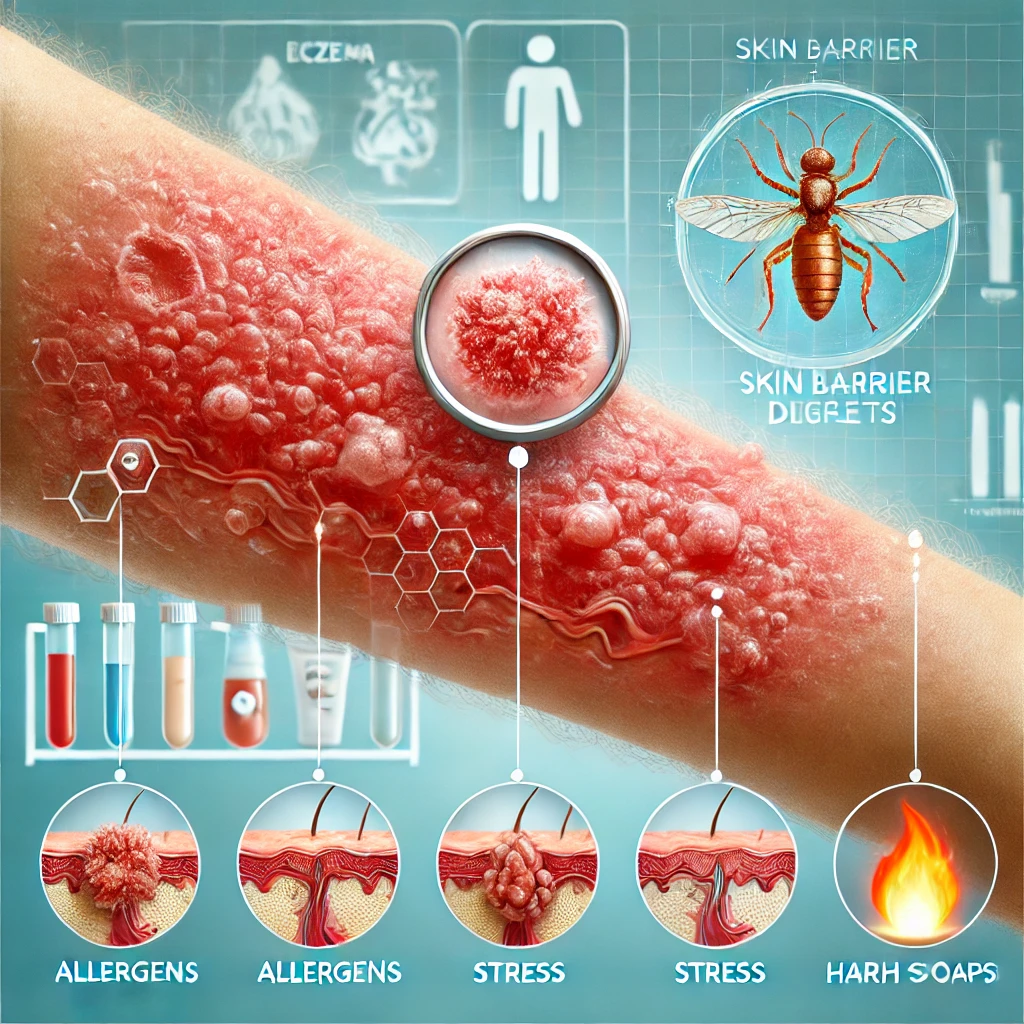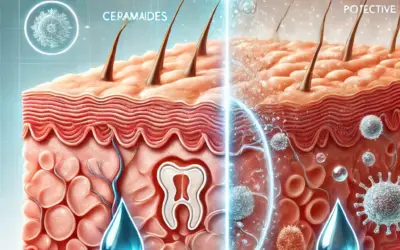When it comes to skincare, most people focus on issues like acne, wrinkles, or dark spots. However, one key factor often overlooked is the health of your skin barrier. Maintaining a strong and functional skin barrier is essential for healthy, glowing skin—and to protect you from environmental damage.
Eczema, also known as atopic dermatitis, is a common skin condition that affects millions of people worldwide. It causes inflammation, redness, itching, and dryness, making it uncomfortable and sometimes painful. While eczema can affect individuals of all ages, it is particularly common in children. Understanding its causes, symptoms, and treatment options can help manage the condition effectively.
Causes of Eczema
The exact cause of eczema is not fully understood, but several factors are believed to contribute to its development, including:
-
Genetics: Individuals with a family history of eczema, asthma, or allergies are more prone to developing the condition.
-
Immune System Dysfunction: An overactive immune response can lead to inflammation and skin irritation.
-
Environmental Triggers: Exposure to allergens, irritants, extreme temperatures, and pollutants can exacerbate eczema.
-
Skin Barrier Defects: A compromised skin barrier allows moisture loss and penetration of irritants, leading to flare-ups.
Symptoms of Eczema
Eczema symptoms vary from person to person and may include:
-
Dry, scaly, or thickened skin
-
Intense itching, which can worsen at night
-
Red or inflamed patches
-
Cracked or oozing skin in severe cases
-
Sensitive or swollen skin due to scratching
Effective Treatment and Management
While there is no permanent cure for eczema, various treatments can help manage and reduce flare-ups. These include:
-
Moisturization: Keeping the skin hydrated with fragrance-free, hypoallergenic moisturizers is essential in preventing dryness and irritation.
-
Topical Steroids and Medications: Over-the-counter or prescription creams can reduce inflammation and itching.
-
Antihistamines: These may help alleviate itching and improve sleep quality.
-
Lifestyle Changes: Avoiding known triggers such as harsh soaps, allergens, and stress can minimize flare-ups.
-
Medical Interventions: In severe cases, dermatologists may recommend phototherapy or immunosuppressive medications.
Living with Eczema
Managing eczema requires a proactive approach that includes a gentle skincare routine, awareness of triggers, and professional medical advice when necessary. Regular check-ups with a dermatologist can help tailor treatment plans based on individual needs.
Conclusion
Eczema can be a challenging condition to live with, but with proper care, it is manageable. By understanding the causes, symptoms, and treatment options, individuals can take control of their skin health and improve their quality of life. If you or a loved one is struggling with eczema, consult a dermatologist for personalized care and guidance.
Conclusion
Your skin barrier is the foundation of healthy skin. By giving it the care and protection it needs, you’ll not only improve the overall appearance of your skin but also safeguard it from future damage. Treat your skin barrier as your first line of defense—it works hard for you, so make sure to give it some love in return!





